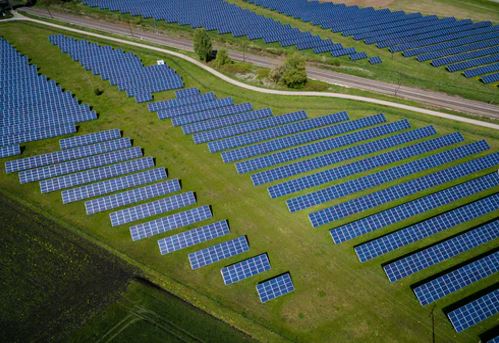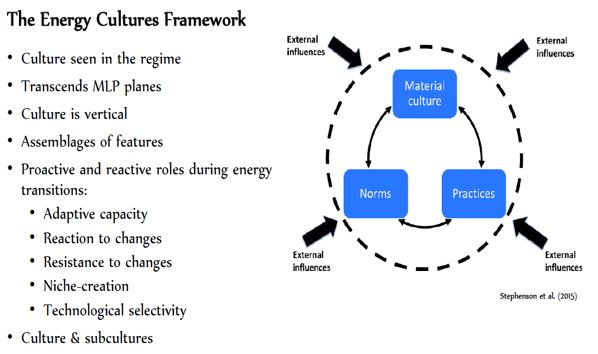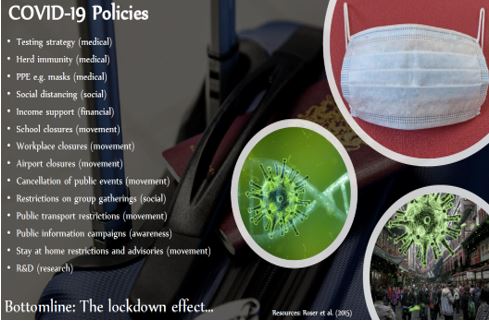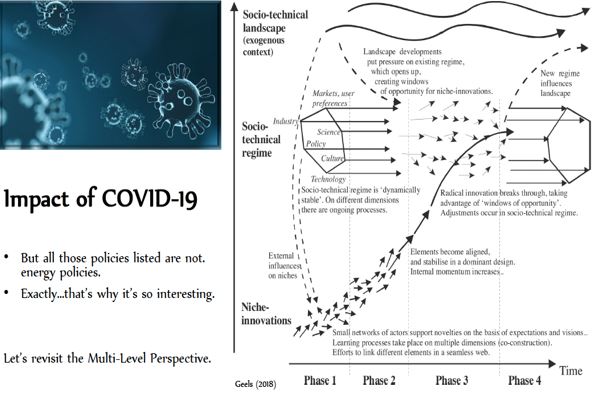On Thursday, 11 June 2020, PHBS-UK, hosted our second webinar in our Culture, Cooperation, and Business (CCB) Seminar Series entitled, “Energy, Culture & COVID-19: The implications for households and understanding the residential energy transition”. The aim of this webinar is to bring the spotlight on how energy can be considered a cultural phenomenon, how this culture of energy can interact with other dimensions such as policies, science, technologies, markets, and industries during an energy transition, and how these energy cultures can be affected by the responses implemented to prevent its spread.

Our invited speaker for the webinar is Dr Kiron Neale. Dr Neale is currently one of the EiE Lead Assessors at Oxford Brookes University. He is responsible for coordinating energy efficiency assessments for businesses in Oxfordshire and he is also a member of the project delivery team for a new Oxfordshire-based energy service company - Energy Solutions Oxfordshire. Dr Neale is a Rhodes Scholar and he received his DPhil in Geography and the Environment from the University of Oxford. He has been conducting research on energy since 2012, and he is an expert on the interactions between culture and policy during energy transitions and their intrinsic processes at work (many of which are involved in the unfolding pandemic). In his webinar, Dr Neale touched on several salient points: what are energy transitions, what is an energy culture, how residential energy transitions can be classed at a cultural level and a systems level, the policies and impact of Covid-19 on residential energy transitions, and their future implications.
Dr Neale defined an energy transition as a fundamental energy system realignment from the standpoint of social and technical elements. This realignment, i.e., changes in the form of landscape, regime, and niche, takes decades to unfold. As the culture of energy belongs to the regime, it is important to look at how it affects energy transition. So, what is a culture of energy? According to Dr Neale, it is the same way that we look at a culture within a society, we can look at a culture of energy by looking at our behavior and how we interact with our surroundings. In other words, energy cultures are made up of our interactions between norms (how we think), materials (objects that we use), practices (things that we do), and the external influences that affect our behavior.

To illustrate the culture of energy and how it affects energy transition, Dr Neale took us through a case study of Barbados from his work in the Caribbean islands. In Barbados, the energy consumption transitioned from the traditional form to that of solar energy. How did that happen, why did that happen, and what are the implications? As Dr Neale explains, in Barbados, the residential solar energy transition in Barbados are influenced by the following:
- the culture
- the conventional energy culture becomes a solarized energy culture
- the science
- a lower efficiency of a solar water heater is upgraded to one with a higher efficiency
- the technology
- a centralized large scaled power generation has changed to one of solar water heating which morphed into grid-tied photovoltaics (PV)
- Market
- Barbados used to rely solely on one electricity utility company
- the increase in usage of solar water heaters lead to an increase in solar water heater retailers, which subsequently transitioned to PV retailers
- Industry
- centralized services to local solar water heater manufacturers to PV importation
- Policy
- tax credits for solar water heaters to renewable energy rider for PC (grid-tied policy)
From the case study of Barbados, we can see that the culture of energy is very complex. As the people of Barbados have the norm of consuming solar energy, their practices influence and are affected by that norm; the practice of flipping an electrical booster in the event that they need more energy than what is available from their PVs, is influenced by how they perceive energy usage and energy costs. The external factors of science, technology, allow for the prevalence of solar water heaters. The changes in policy where one gets tax credits and the ability to sell excess energy back to the grid in turn affects the practices. As more and more people use solar energy and solar water heaters, the market and industry adapt and change to reflect the energy transition. This brings us to the crux of Dr Neale’s webinar: How does Covid-19, with its policy changes and lifestyle changes impact our energy culture and energy transition?
As the Covid-19 pandemic spreads and governments across the world implemented lockdown polices to curb the spread, here in the UK, we too see numerous policy changes in response to the pandemic. As international travel is restricted, airports are closed, schools are closed, workplaces are shut down, cancellation of public events, and stay at home restrictions and advisories, as well as an increase in laboratory work in terms of testing, vaccine development, and hospital treatments, the effect of these non-energy policies on our energy culture becomes even more interesting. As the majority of the population stay at home, these policy changes affect the where, why, and when of our energy behaviors; the movement of energy users are modified and there is a domestic concentration of energy users; we do not use petrol to commute to work, our work computer energy usage is now concentrated to the home instead of at work, we cook more at home instead of eating out, just to name a few. As such, as our energy culture is sensitive to our daily, weekly, and annual timescales, what are the implications to our energy use and energy transitions?
Dr Neale thinks that these changes in response to the Covid-19 policies are likely to be temporary and short to medium-term. As energy transitions take decades to unfold, these policy changes are unlikely to cause any long-term energy transitions as our behavior would revert once the lockdown is lifted. Even as we notice what, amongst our many electrical appliances are the most salient during the lockdown (e.g. laptops), our overall energy culture remains unaffected; for example, there is no increased demand for solar energy. Despite the reduction in the usage of public transport and the promotion of the usage of bicycles, this is unlikely to cause any change in energy transition in the long term unless other factors come into play.


In conclusion, unless the Covid-19 policies affect our behavior in the long term, Dr Neale concludes that it is unlikely that the UK would see an energy transition in the near future. In the short-term, what we see are savings from other sectors as opposed to an increase in residential energy consumption. Thus, it is hoped that the Covid-19 policies would in some way change our energy cultures which would eventually cause an energy transition. We might see a change in how we work more from home, and commute less. If we spend more time at home, we might be more conscious of how we use energy as it directly impacts our energy costs. It is hoped that we could transition to a more renewable energy source, like solar energy during the day as we work from home, or EVs as battery stores for homes as we travel less, wider policy changes in terms of energy pricing.
Dr Neale’s webinar on energy cultures and energy transitions during the time of Covid-19 certainly intrigued our audience and there were questions on whether we would be more conscious of our energy use now that we are paying for it, and whether we would fundamentally change our energy behaviors like cycling and walking more, and eating out less. Dr Neale replied that our energy culture need time to develop and in the short-term we might see a change but the question still remains if we would revert back to our norms once the lockdown is lifted. If we all stick to the new changes, we might eventually see an energy transition towards a better, and renewable source of energy. Indeed, that is certainly food for thought for our audience.
PHBS-UK thanks Dr Neale for his very engaging and thought-provoking talk. We hope that this webinar would prompt every one of us to pay more attention to our energy culture. Let us all hope that for the better of our climate, our energy culture would eventually cause an energy transition!




